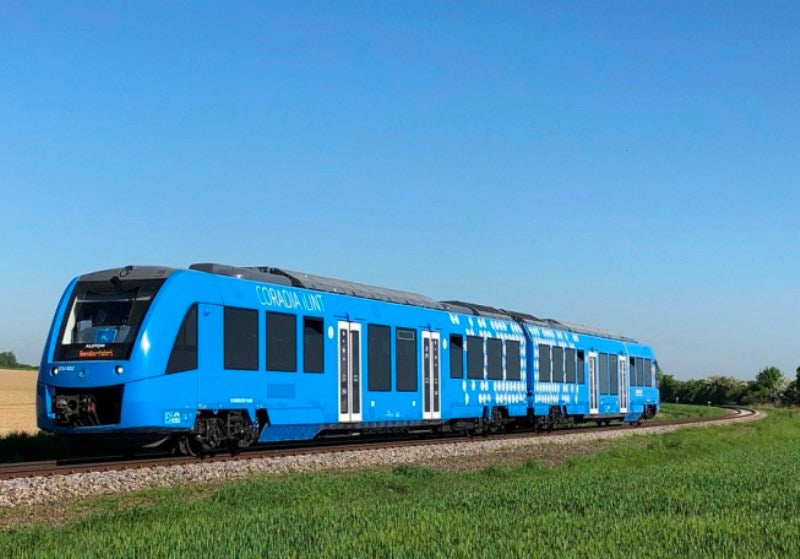
Alstom has carried out ten days of tests of the Coradia iLint hydrogen fuel cell train on the 65km line running between Groningen and Leeuwarden in the north of the Netherlands.
The tests come after 18 months of passenger service on the Buxtehude–Bremervörde–Bremerhaven–Cuxhaven line in Germany.

Discover B2B Marketing That Performs
Combine business intelligence and editorial excellence to reach engaged professionals across 36 leading media platforms.
Germany has already ordered a total of 41 Coradia iLint trains.
The latest tests mark the Netherlands to be the second country in Europe where the train is claimed to offer an emissions-free solution for non-electrified lines.
Last October, a pilot project agreement was signed between Alstom, the Province of Groningen, local operator Arriva, Dutch railway infrastructure manager ProRail and energy company Engie to test the Coradia iLint in the Netherlands.
Testing inspection and certification company DEKRA has been appointed test leader.

US Tariffs are shifting - will you react or anticipate?
Don’t let policy changes catch you off guard. Stay proactive with real-time data and expert analysis.
By GlobalDataA mobile filling station has been installed by Engie for refuelling the Coradia iLint with green and sustainably produced hydrogen during the series of tests, which are being carried out at night at up to 140km/h without passengers.
Alstom Benelux managing director Bernard Belvaux said: “The tests in the Netherlands demonstrate how our hydrogen train is mature in terms of availability and reliability, providing the same performance as traditional regional trains, but with the benefit of low noise and zero emissions. It is also easy to integrate in an existing fleet and is compliant with all safety regulations. The Coradia iLint hydrogen train is a reliable emission-free train ready to help transport us to a carbon-neutral Europe.”
The Coradia iLint is claimed to be the first regional passenger train in the world to enter service fitted with fuel cells to transform hydrogen and oxygen into electricity, thereby reducing pollutant emissions associated with propulsion.
The train’s only emission is water. Developed for use on non-electrified lines, it has a range of around 1,000km, which is the same as equivalent-size diesel multiple units.
The train is developed and produced by the Alstom teams in Salzgitter, Germany, and Tarbes, France.
The Dutch railway network has around 1,000km of non-electrified line on which approximately 100 diesel trains currently operate.





